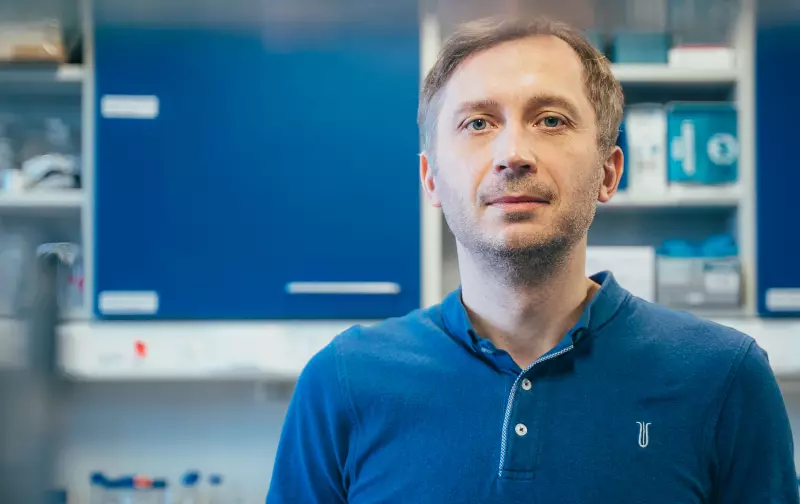Vladimir Varga Group
Institute of Molecular Genetics, CAS
TPC group associated to DIGS-ILS

Eukaryotic cilia and flagella are evolutionary well-conserved organelles with critical functions in cell motility, sensing and signalling. Malfunctions of these organelles cause pleiotropic diseases called ciliopathies. Our laboratory addresses the question of how does the very complex yet highly organized cytoskeleton of these organelles form.
To answer this we study the protozoan parasite Trypanosoma brucei, the causative agent of sleeping sickness, which is an experimentally highly tractable flagellated organism. This facilitates development of novel biochemistry, molecular biology, and cell biology approaches, enabling description of key processes and identification of proteins involved. This is important as the flagellum is critical for the parasite survival in its host.
Moreover, leveraging the high evolutionary conservation of the organelles we study mammalian orthologs of the identified trypanosome proteins. We investigate their roles in mammalian motile and primary cilia using tissue cultures as well as animal models. This approach contributes to our understanding of these fascinating organelles and has a potential to reveal causes of certain types of ciliopathies.
FUTURE PROJECTS
We will continue using the evolutionary approach to discover proteins critical for construction and function of the flagellar and ciliary cytoskeleton. We further continue developing biochemistry and imaging methods to achieve better understanding of these processes with the ultimate aim to reconstitute some of the key processes in in vitro biochemical assays. By employing this comprehensive approach we willgain a mechanistic understanding of the flagellar and ciliary cytoskeleton.
METHODOLOGICAL AND TECHNICAL EXPERTISE
Molecular and cell biology experiments with trypanosomes and mammalian cell cultures
Live cell imaging of processes occurring in flagella and cilia
In vitro reconstitution assays
Institute of Molecular Genetics, Czech Academy of Sciences
Videnska 1083
14000 Prague 4
Czech Republic
since 2016
Group leader at the Institute of Molecular Genetics of the Czech Academy of Sciences, Prague, Czech Republic
2009–2015
Postdoc in the laboratory of prof. Keith Gull at the Sir William Dunn School of Pathology, University of Oxford, UK
2003–2009
PhD in Biology at the Max Planck Institute of Molecular Cell Biology and Genetics and Technical University, Dresden, Germany. Research towards PhD thesis conducted in the laboratory of prof. Joe Howard.
Vachova H, Alquicer G, Sedinova M, Sachova J, Hradilova M, Varga V
A rapid approach for in locus overexpression of Trypanosoma brucei proteins.
Mol Biochem Parasitol 2020 239: 111300
Kiesel P, Alvarez Viar G, Tsoy N, Maraspini R, Gorilak P, Varga V, Honigmann A, Pigino G
The molecular structure of mammalian primary cilia revealed by cryo-electron tomography.
Nat Struct Mol Biol 2020.
Abeywickrema M, Vachova H, Farr H, Mohr T, Wheeler RJ, Lai DH, Vaughan S, Gull K, Sunter JD, Varga V
Non-equivalence in old- and new-flagellum daughter cells of a proliferative division in Trypanosoma brucei.
Mol Microbiol 2019 112(3): 1024-1040.
Varga V, Moreira-Leite F, Portman N, Gull K
Protein diversity in discrete structures at the distal tip of the trypanosome flagellum.
Proc Natl Acad Sci U S A 2017 114(32).